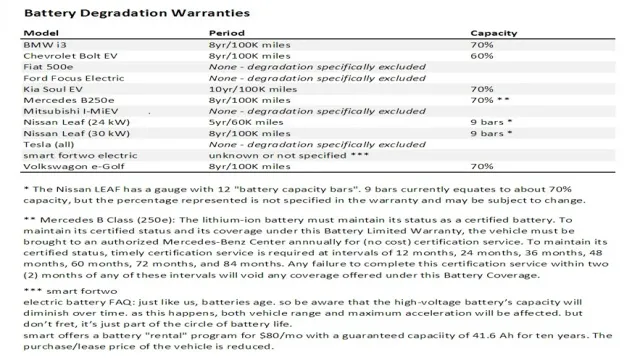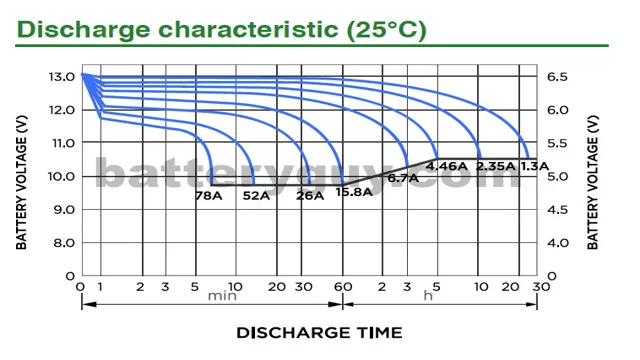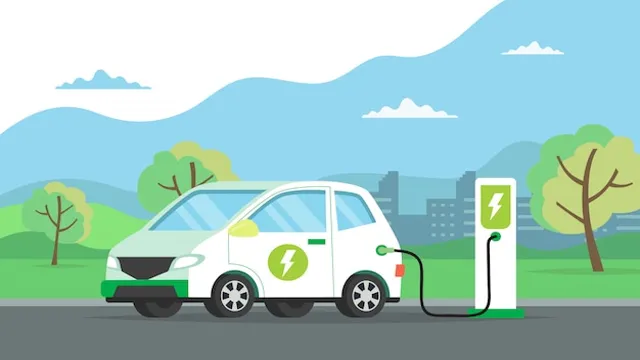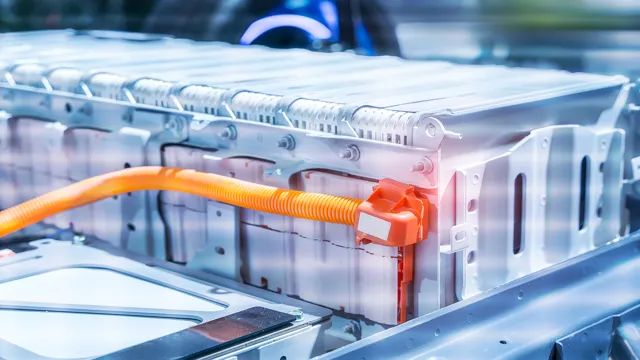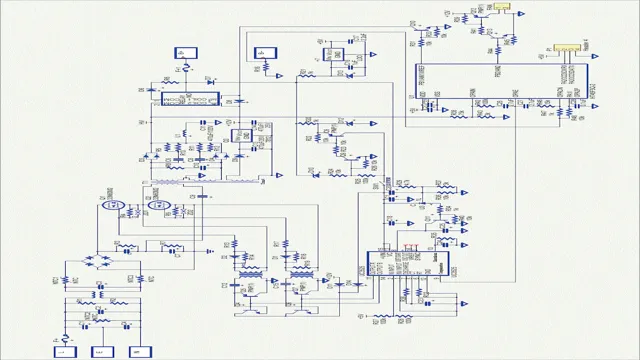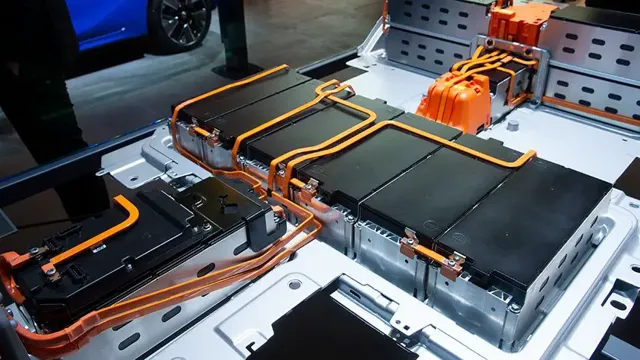Unlocked: Everything You Need to Know About Your Electric Car Battery Warranty
Electric cars are no longer a thing of the future, but they are a present reality. They are becoming increasingly popular due to their eco-friendly features and minimal operating costs. However, one concern among electric car owners is the battery warranty.
Electric car batteries are known for being expensive to replace, so it’s no surprise that people want to know what their warranty covers. In this blog post, we will dive deeper into electric car battery warranties and what you should know to make informed decisions about your purchase. We promise to make the topic easy to understand and straightforward without overwhelming you with technical jargon.
So buckle up and let’s get started!
What Is Covered Under an Electric Car Battery Warranty?
If you’re considering purchasing an EV, you may be wondering what exactly the battery warranty covers. Generally speaking, most manufacturers provide warranties on their batteries for a specific number of years or miles, whichever comes first. These warranties cover defects such as premature capacity loss or damage caused by a faulty cell.
However, it’s important to note that the exact terms and conditions of the warranty can vary significantly between manufacturers. For example, some brands may only cover battery capacity loss if it drops below a certain percentage, while others may cover any capacity loss at all. In addition, most warranties only cover the battery itself, not any ancillary systems or components like the charging system.
It’s crucial to read the fine print of your warranty to fully understand what is covered and what is not. At the end of the day, a battery warranty for your electric car can provide peace of mind, knowing that you are protected against unexpected faults or issues with your vehicle’s primary power source.
Length of Warranty
When purchasing an electric car, one of the most important things to consider is the length of the battery warranty. Most electric car manufacturers offer warranties ranging from eight to ten years, or about 100,000 miles on the battery. However, it’s important to check exactly what is covered under the warranty as it can vary between manufacturers.
Typically, the warranty covers defects in materials and workmanship, as well as any significant loss in battery capacity over time. However, it’s important to note that normal wear and tear, damage caused by accidents, and certain environmental factors may not be covered. Before buying an electric car, make sure to read the warranty information carefully and clarify any doubts with the manufacturer or dealer.
This will ensure you get the best value for your money and peace of mind knowing your investment is protected.
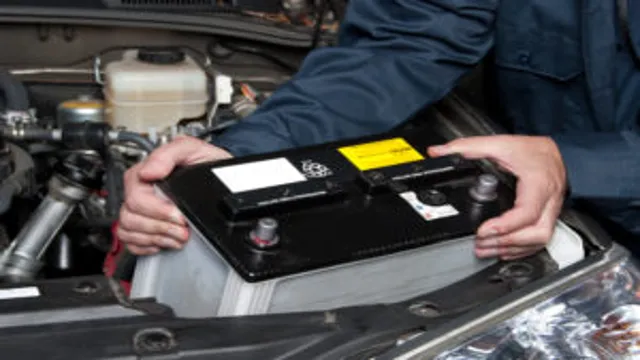
Battery Replacement Criteria
When it comes to electric car batteries, understanding the warranty coverage is crucial. The specifics of a warranty will vary between manufacturers, but generally, battery warranties will cover defects and malfunctions. This means that if your battery suddenly fails or stops functioning as it should, you may be able to have it replaced under warranty.
However, it’s important to note that certain conditions can void your battery warranty. For example, if you damage the battery or tamper with it in any way, your warranty may no longer apply. Additionally, regular wear and tear on the battery over time typically won’t be covered.
It’s important to carefully read through your warranty documentation to understand the criteria for battery replacement. With proper care and maintenance, though, electric car batteries can last for many years.
How to Make Sure Your Battery Warranty Stays Valid
Are you wondering how to ensure that your electric car’s battery warranty stays valid? Firstly, it’s essential to understand the terms and conditions of the warranty. Typically, the battery warranty covers defects in the material and workmanship for a specific period. To ensure that you don’t void the warranty, stick to the manufacturer’s guidelines on charging and maintain the battery.
Using non-recommended chargers or fast charging frequently can harm your battery and void the warranty. Also, it’s crucial to keep up with the vehicle’s regular maintenance, such as tire rotations and brake pads. Neglecting vehicle maintenance can lead to issues with the battery, and manufacturers won’t honor the warranty if they deem a lack of maintenance as the cause of the problem.
Therefore, to make sure that your battery warranty stays valid, follow the manufacturer’s guidelines, maintain your car as recommended, and treat the battery with care.
Proper Maintenance Tips
As a car owner, it’s important to maintain your vehicle’s battery to ensure it continues to function properly and lasts for as long as possible. But did you know that proper maintenance is also essential for keeping your battery warranty valid? Most manufacturers require regular maintenance, such as checking the battery’s fluid levels and connections, in order to honor the warranty. Neglecting these tasks could result in the warranty becoming void.
So make sure to follow the manufacturer’s guidelines for battery maintenance, and keep accurate records of your maintenance activity to prove compliance in case of a warranty claim. By taking good care of your battery, not only will you prolong its lifespan, but you’ll also protect your investment and ensure you can take advantage of any warranty benefits that may be available.
Keeping Service Records
When it comes to keeping your battery warranty valid, proper maintenance and keeping service records are crucial. To ensure that your battery remains in good condition and doesn’t fail prematurely, regularly scheduled maintenance checks and servicing are essential. This not only helps to maximize the life of the battery, but keeping records of these visits can help you keep track of any issues or repairs that were made.
This information is vital in the event that your battery does fail and you need to make a warranty claim. Without proper documentation, you may risk having your claim rejected, leaving you to pay for repairs out of pocket. So, make sure to keep track of your battery’s maintenance and servicing activities to ensure your warranty stays valid and you avoid any unexpected expenses.
Following Manufacturer Guidelines
The battery warranty of your electronic device is an essential aspect to consider, especially if you rely on its capability for daily work or entertainment. One way to avoid losing the warranty is by following the manufacturer’s instructions. The manufacturer guidelines provide clear and concise directions on the proper use and maintenance of your battery.
For instance, if the manufacturer states that charging your device overnight can harm the battery, make sure to avoid doing so. Similarly, if the guidelines state that you need to use a specific charger, avoid using a different one. By following these guidelines, you ensure that the battery stays healthy and maintains its full capacity for as long as possible.
This way, you don’t need to worry about losing your warranty due to improper usage. Remember, it’s always better to be safe than sorry when it comes to battery maintenance.
Warranty Comparison: Top Electric Car Brands
When purchasing an electric car, one of the most important considerations is the battery warranty. Different car brands will have varying policies, so it is important to understand what you are getting into before you buy. Tesla, for instance, offers an impressive eight-year, unlimited-mileage warranty for their batteries.
This means that if your battery fails within eight years of purchase, or if it drops below 70% of its original capacity during that time, Tesla will replace it for free. Nissan offers a similar eight-year warranty for their electric car batteries, but with a mileage limit of 100,000 miles. Other brands may offer less comprehensive warranties, so it’s important to do your research and choose a car that comes with a warranty that gives you peace of mind.
All in all, the battery warranty for electric cars should be a major factor you consider when purchasing a new vehicle.
Tesla
When it comes to electric cars, Tesla is undoubtedly one of the top brands on the market. However, how does Tesla’s warranty compare with other electric car brands? Let’s take a closer look. Tesla offers an impressive standard warranty of 4 years or 50,000 miles, whichever comes first.
This covers any defects in material or workmanship, but Tesla’s battery and drivetrain also come with a separate warranty of 8 years or 150,000 miles. When compared with other electric car brands like Nissan, Chevy, and BMW, Tesla’s warranty is the most comprehensive and offers the longest coverage. While Nissan and Chevy offer a similar warranty of 3 years or 36,000 miles, BMW only offers 4 years or 50,000 miles.
In conclusion, if warranty coverage and peace of mind are essential to you, then Tesla is the clear winner in comparison to other electric car brands.
Nissan
When it comes to warranties for electric cars, Nissan offers a competitive coverage plan. The Leaf, their popular electric vehicle, comes with a limited warranty of 3 years/36,000 miles, as well as a 5-year/60,000-mile powertrain warranty. Additionally, Nissan offers an 8-year/100,000-mile warranty for their battery, giving drivers peace of mind when it comes to the longevity of their vehicle.
Compared to other top electric car brands, such as Tesla and Chevrolet, Nissan’s warranty offerings are on par. However, it’s important to do your own research and compare warranties for the specific make and model you’re interested in, as coverage can vary. Overall, Nissan’s warranty package for their electric cars offers a solid level of protection for buyers.
Final Thoughts
When it comes to purchasing an electric car, the battery warranty is an essential factor to consider. It’s crucial to ensure that the warranty covers the battery for an extended period, as it’s the most expensive component in an electric car. Typically, most automakers offer battery warranties for 8 to 10 years, ensuring that drivers can enjoy an extended period of trouble-free driving.
However, it’s important to read the terms and conditions of the warranty thoroughly to understand what’s covered and what’s not. Some warranties exclude degradation of the battery, which means that the battery could still lose capacity over time, leaving the driver with an expensive replacement cost. Overall, when purchasing an electric car, the battery warranty should be a top priority, and drivers should ensure that the warranty covers any potential battery issues for an extended period.
Conclusion
In summary, the battery warranty for electric cars is like a shield that protects your investment in a sustainable future. It’s the insurance policy that assures you that your vehicle will always have the juice it needs to carry you forward. It’s the safety net that keeps you driving with a clear conscience, knowing that you’re taking care of the planet and your pocketbook.
So go ahead, drive on, and let your warranty give you the power to make the right choice for the environment and your wallet.”
FAQs
What is the typical warranty period for an electric car battery?
The typical battery warranty for an electric car ranges from 8 to 10 years or up to 100,000 miles, depending on the manufacturer.
What are some factors that can void the battery warranty for an electric car?
Factors that can void the battery warranty for an electric car include using the wrong charging equipment, modifying the battery or electrical system, and water damage.
Is the battery warranty transferable if I decide to sell my electric car?
It depends on the manufacturer. Some offer transferable warranties, while others do not. Check with the manufacturer for specific details.
What happens if my electric car battery fails during the warranty period?
If your electric car battery fails during the warranty period, the manufacturer will replace or repair it free of charge. However, some warranties may have specific terms and conditions such as pro-rated replacement after a certain amount of time.
